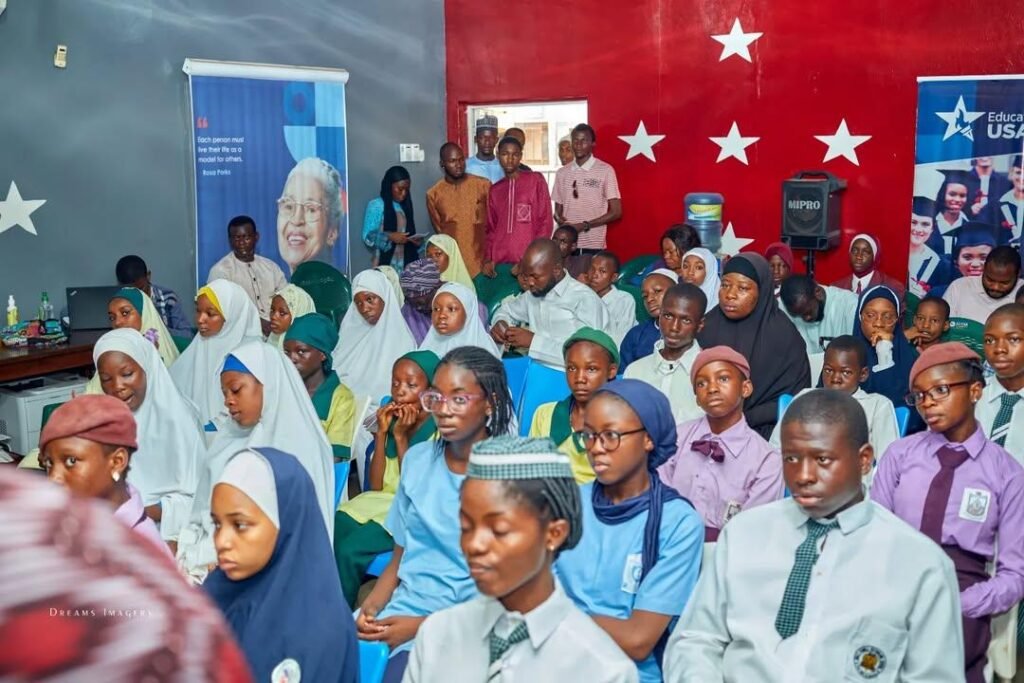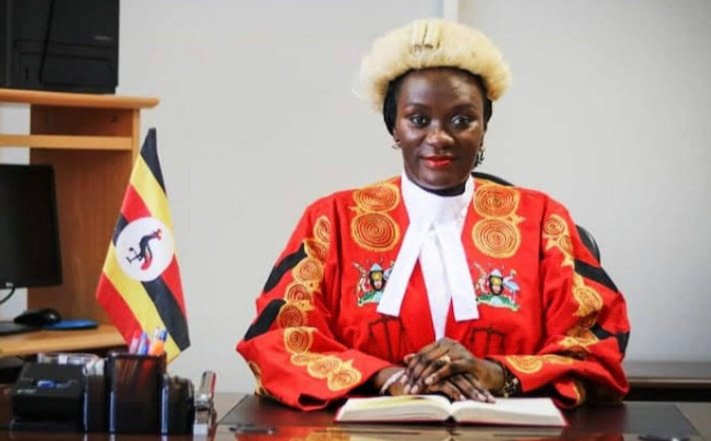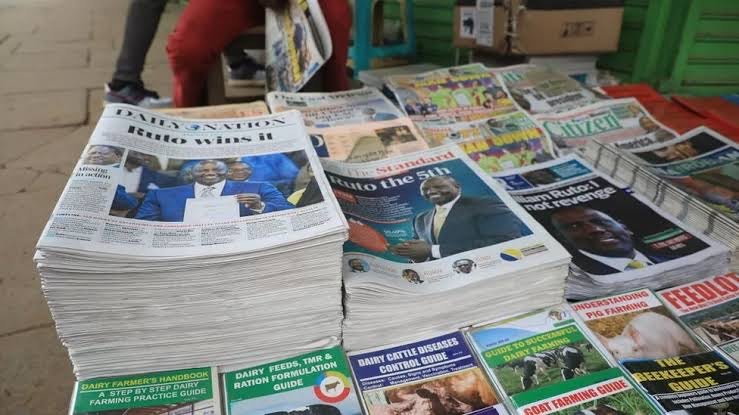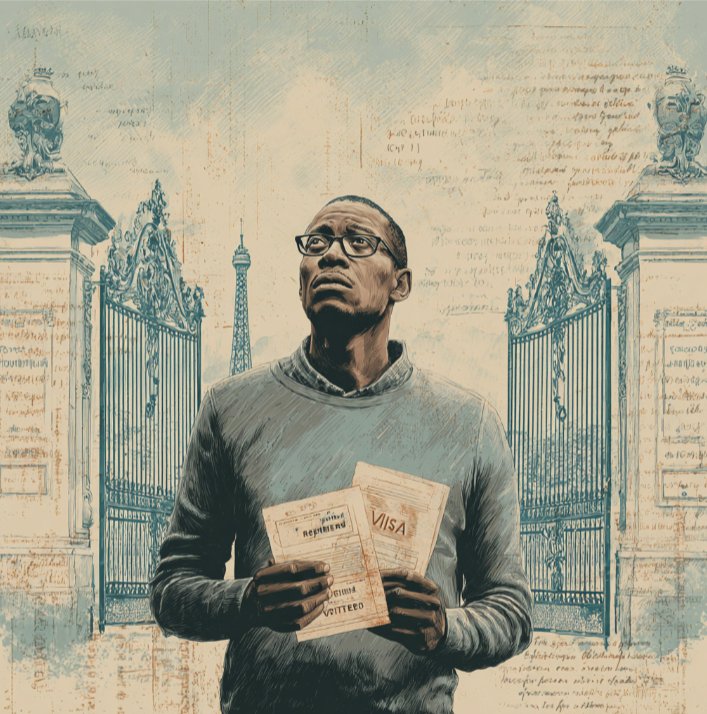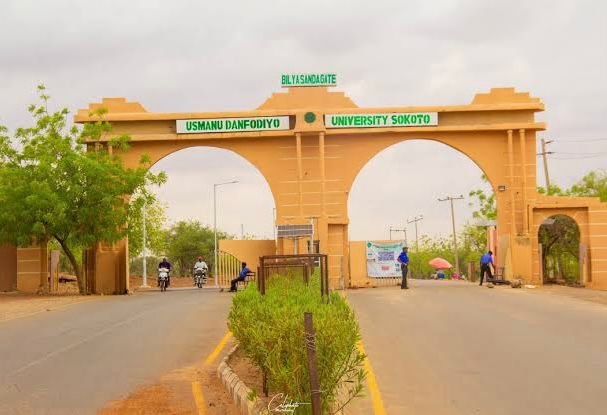Since a tender age, Uchena Emelife has loved literature. But he did not always have access to novels and books, especially literary works authored by Africans that mirrored the challenges and prospects of the region he belongs to.
“I had an older sister who also loved books … and I had access to my sister’s bookshelf. But the comic books we were able to afford, owing to our humble background, were very Western and Eurocentric,” Emelife, a literature graduate at Usmanu Danfodiyo University, Sokoto, said.
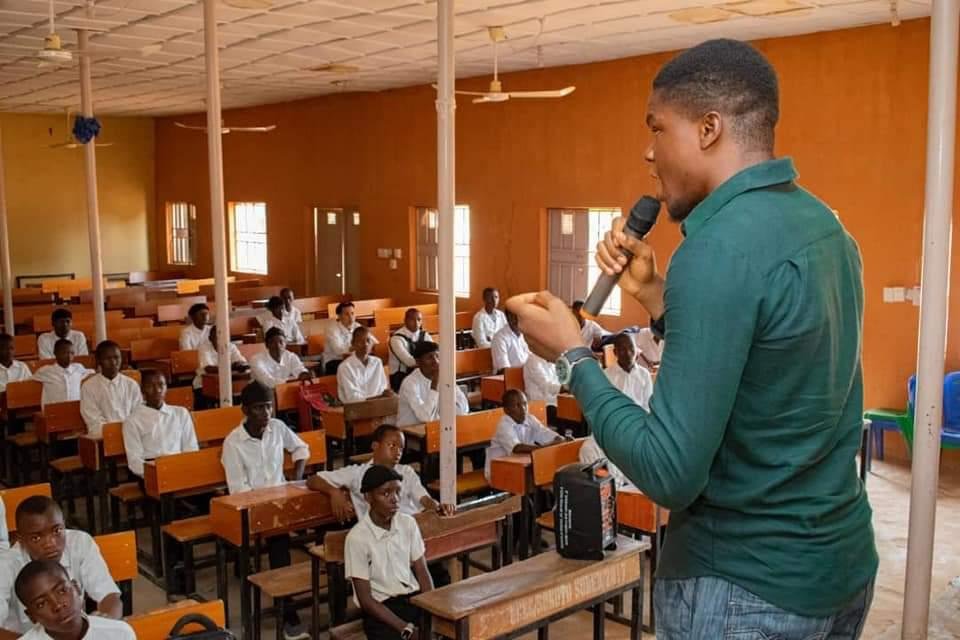
Growing up in Sokoto, in the north-west of Nigeria, Emelife faced challenges, given his enthusiasm for reading.
Although Nigeria is a giant in Africa and the most populous, the country’s commitment to a reading culture is low, according to the World Culture Score Index.
An estimated 38% of Nigerians are illiterate, with four out of 10 primary school students struggling to read comprehensively, according to data from the National Commission for Mass Literacy, Adult and Non-Formal Education.
Meanwhile, the decline in reading habits in Nigeria has been attributed to a lack of access to books, inadequate educational resources and a preference for other forms of entertainment. In addition, many Nigerians focus on academic reading, while neglecting reading for pleasure, according to a news report in The Guardian.
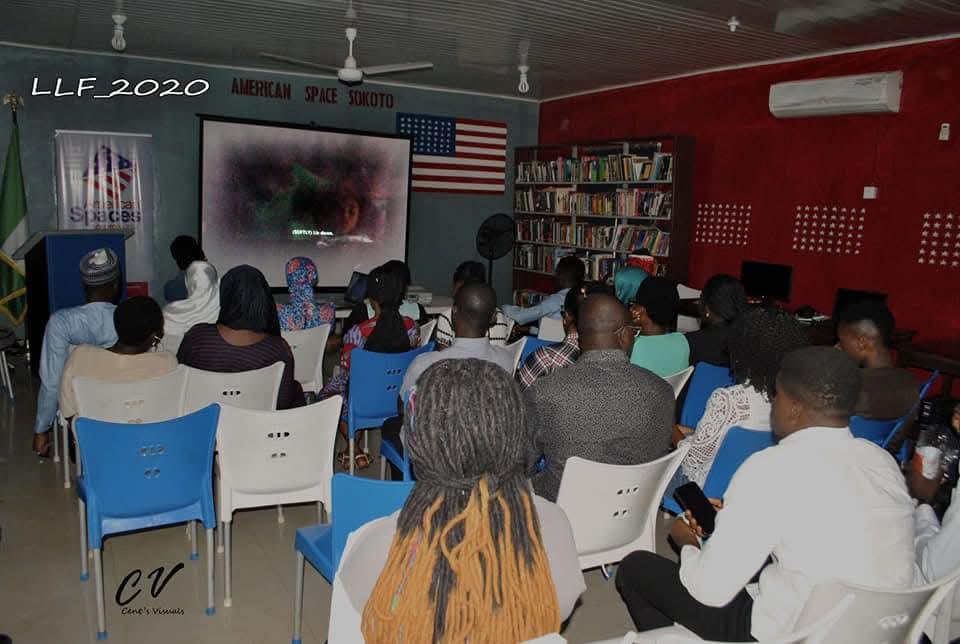
Making a change
Perturbed with a reality in which many people in his region regarded reading as a waste of time, Emelife, took it upon himself to fill this gap, lead a change and revive the reading of a literature tradition in Nigeria.
“I read Purple hibiscus by Chimamanda Ngozi Adichie. That book changed me, gave me solace and it made me realise that Africans could feature in the arts and do what I read white men are doing. And from there I knew I was in love with books and started longing for literature,” he said, narrating how he joined an online community of writers in 2015.
“The more I read other people’s works, and kept writing mine, the more I realised I had a desire for writing and works of the arts.”
But, in Sokoto, there were no platforms to support literature enthusiasts like himself. He found pictures online of people in Lagos and other cities at book club meetings, writing workshops, poetry slam and the likes, and decided to bring a similar initiative to Sokoto State.
Promoting African literature
While still a student in 2020, he decided to found the Book O’Clock club, a non-profit literary organisation that seeks to promote literacy in Africa, as well as to use arts and literature as a tool for social advocacy at Usmanu Danfodiyo University, Sokoto (UDUS).
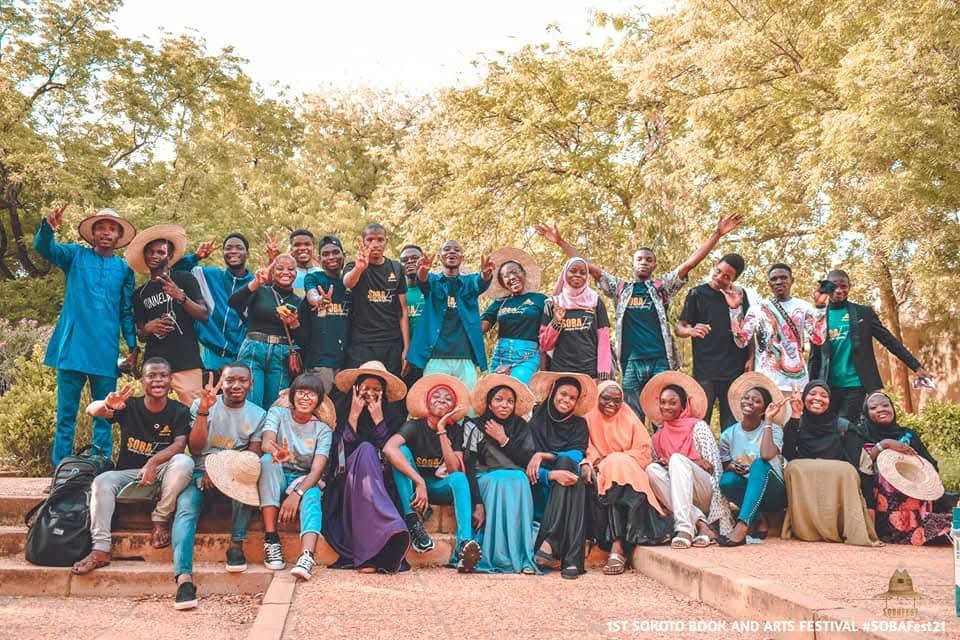
Since then, the club has brought together students and literature lovers while promoting literacy and encouraging a reading culture, especially the reading of African literature.
Although domiciled at, and operating physically in Sokoto, it engages with a large number of virtual followers who are interested in African literature through its line-up of activities.
It publishes a literary journal for African literature called Book O’Clock Review in which news, features, essays and interviews emanating from the African literary scene are covered and, through its book clubs, it encourages the reading culture, especially the readership of African literature, having two hubs in Sokoto.
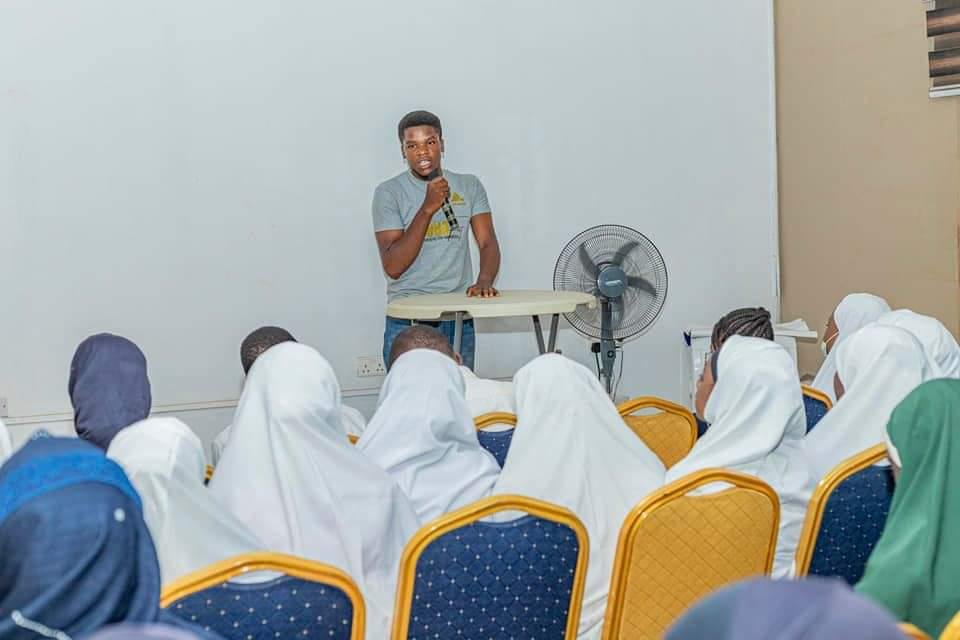
Another literary activity the club is involved with is the hosting of the Sokoto Book and Arts Festival, a hybrid cultural event connecting lovers of literature in Nigeria, and which spotlights and increases the visibility of budding artists.
Reconnecting with literature
“Book O’Clock has been able to connect students of UDUS with contemporary African literature, which used to be the least read and engaged by readers in Sokoto. Through our book club activities like monthly readings, and the hosting of in-person and virtual book chats, we have introduced new African authors to students, which has helped them stay updated with literary trends,” Emelife revealed.
According to him, the club’s activities have also impacted on universities other than his alma mater.
“In early 2024, the Association of English and Literature UNILAG [University of Lagos], started a book club inspired by our platform. We collaborated with them in their first outing and they have since become a community of arts enthusiasts within the University of Lagos.
“The same year, the Obafemi Awolowo University branch of the same association (Association of English and Literature), started a literary platform which one of the organisers, Isaiah Adepoju, said was influenced by Book O’Clock.
“We are grateful that, in our own small way, we are showing others what literature can do, how literature can be a binding force. It doesn’t matter how small or insignificant you may consider your community, your drive for literacy development is still needed,” Emelife said.
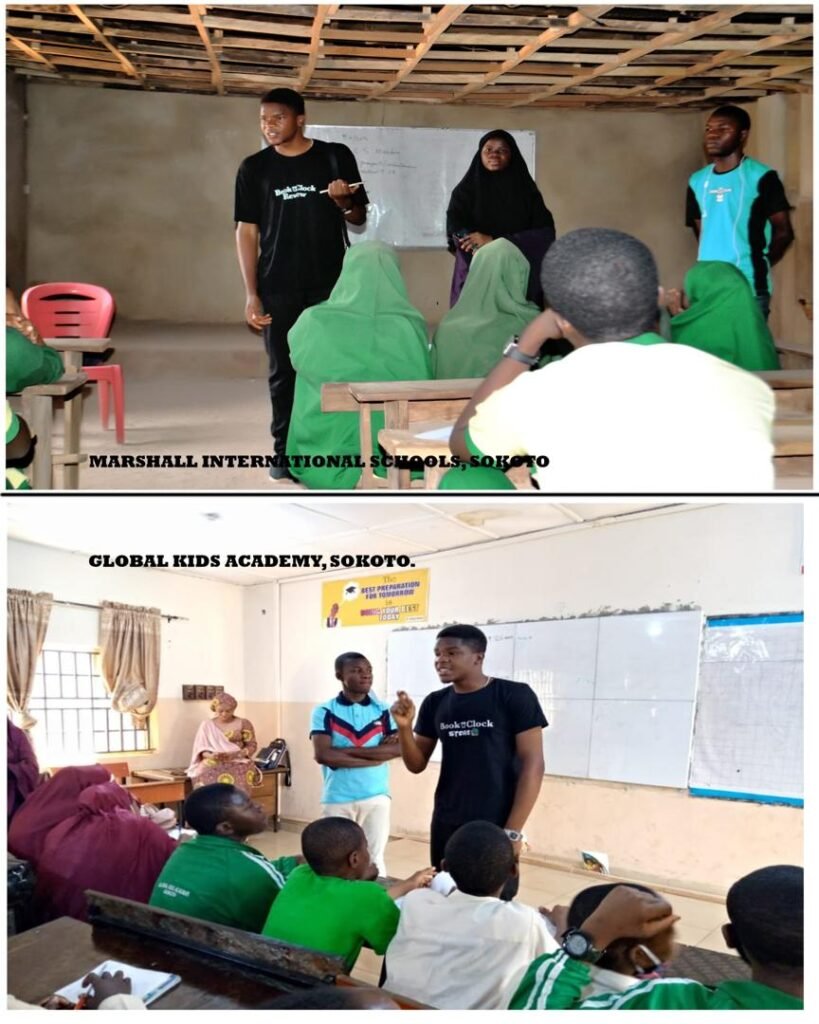
In addition to enriching the literary scene on university campuses, Book O’Clock has also made an impact in the lives of individual students.
Ogechukwu Maryann Amarah had a background in life sciences but was an addict of fiction and non-fiction works. As an undergraduate student of biochemistry, she cut her affair with reading novels in 2016 because her academic work became too taxing.
“From my early years, I have been passionate about literature, particularly prose, which made me aspire to write my own stories. However, I temporarily lost touch with literature during my undergraduate studies because school was hectic. Fast forward to 2020, I saw a post by Uchena Emelife about a Book O’Clock Literature and Film event which took place in Sokoto so I immediately reached out to him.”
That was the story of how Emelife’s Book O’Clock reunited Amarah with literature. She later engaged in the club’s book reviewing, monthly meet-ups, book spaces with African writers and other literary activities. Amarah is forever happy that the club planted the love of African literature in her heart.
“To be honest, before I found Book O’Clock, I was more immersed in Western literature. However, I was exposed to more African literature and authors when I joined the group. I also built a habit of reading a book per month,” Amarah noted.
Fatima Usman is another beneficiary of the club’s scheduled activities which aided her as a literature student at the university.
“The club has seriously influenced my reading. Though I’ve been reading for the sake of school and all, I haven’t been reading for pleasure. With Book O’Clock, I read and discuss with others in fun. I developed more passion for reading African works, no matter how bulky they are,” Usman said.
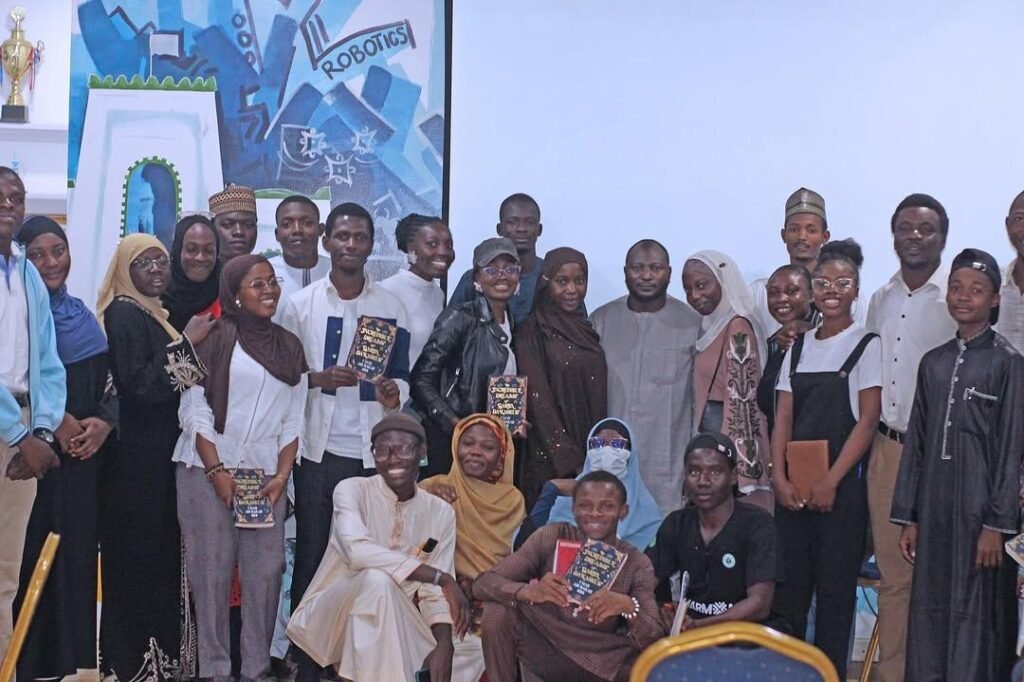
The club has established a bookstore in Sokoto and Lagos where it sells African literature to lovers nationwide.
Giving hope to school learners
Secondary schools in Nigeria also benefit from the activities of Book O’Clock. One of them is Iman International School, Sokoto. Abdussemiu Aliu Lambe, the principal of the school, explained how their learners’ attitudes to reading culture and love for literature have increased positively, thanks to Book O’Clock.
“The influence of the club on the reading culture of our children is very positive. Learners have been inspired a lot through its activities. They donate reading materials such as books, and African literature [novels] to us which are instrumental to shaping our children’s thoughts. Our high school learners are always looking forward to interacting with the members of Book O’Clock,” he said.
He added: “Its annual festival has been an eye-opener to our learners [as they can] meet so many authors of books they have read. [They can] network with a lot of stakeholders, as well as participate in several literary competitions.”
Lambe further noted that the relationship between the club and the school helped the high school learners to develop positive mindsets towards writing.
“Some of our students have started conveying their thoughts by writing articles, some in poems, and some in writing books. These are some of the gains we had from the club and we look for more.”
How to support a reading culture
Music and movies have been seen to distract people from reading, then came the internet, said Dr Mansur Isah Buhari, a lecturer in the department of literary studies at UDUS.
“In Northern Nigeria, the same reasons can be given. However, it can be argued that reading in the English language has declined more than reading in the local languages, Hausa especially. Young girls read Hausa novels and other content on their WhatsApp groups. That does not mean that reading in local languages has not also declined in the North,” he added.
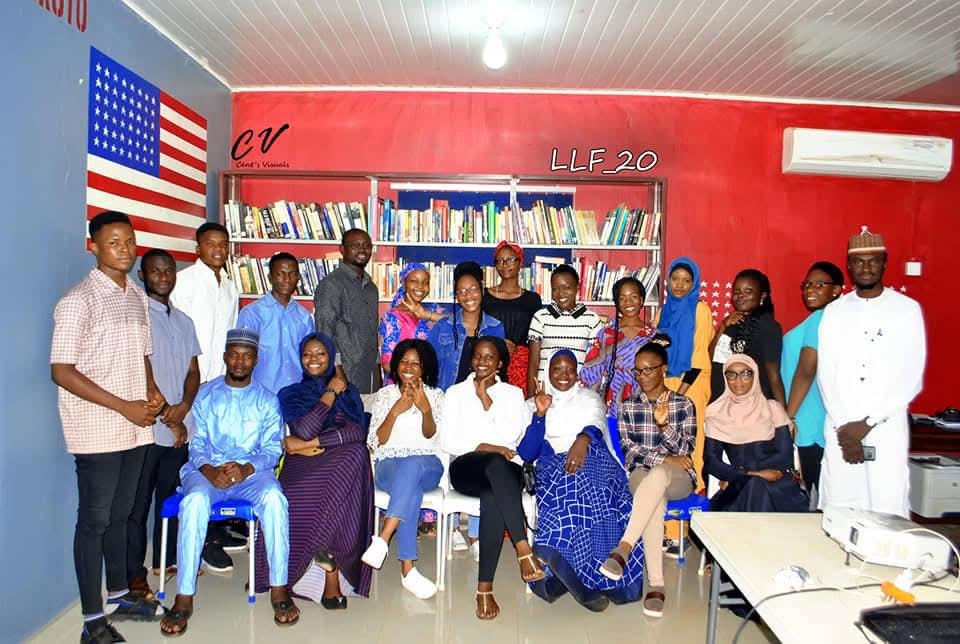
Buhari said the emergence of Book O’Clock contributed to the reading culture in Nigeria, in particular in the North.
“Book O’Clock has done a tremendous job in encouraging and promoting a reading culture and African literature among young people. Their interventions, especially through catch-them-young activities in schools, have significantly helped many discover the need for and advantages of reading, and assist young people to grow their reading skills to the maximum,” he explained, advising citizens at all levels to support the club and help to promote a reading culture through which prevalent societal problems can be solved.
Dr Aisha Umar Muhammad, a university lecturer and literacy development advocate, agrees with Buhari’s submission that the decline in a reading culture is a worldwide challenge, but the low level of education in northern Nigeria is another contributing factor.
“Book O’Clock and others are changing the narrative, [and] making people read for entertainment and enjoyment rather than reading for knowledge or passing exams,” she said.
Muhammad stressed that many Nigerians do not consider reading books as a pleasure and, as such, saw it as a waste of time, which is why many young people are disinterested in reading.
“There is no doubt that Book O’Clock is doing a wonderful job in promoting and boosting a reading culture in Northern Nigeria and beyond. It is indeed a community service the club is doing. It makes reading fun, and because people love fun, it attracts a lot of people.”
She appealed to governments, non-governmental organisations and all stakeholders to financially, morally and materially support the club to aid the extension of its services.
*The story was commissioned and first published by the University World News, a UK-based independent online publication providing high quality news and commentary for the international higher education community.

